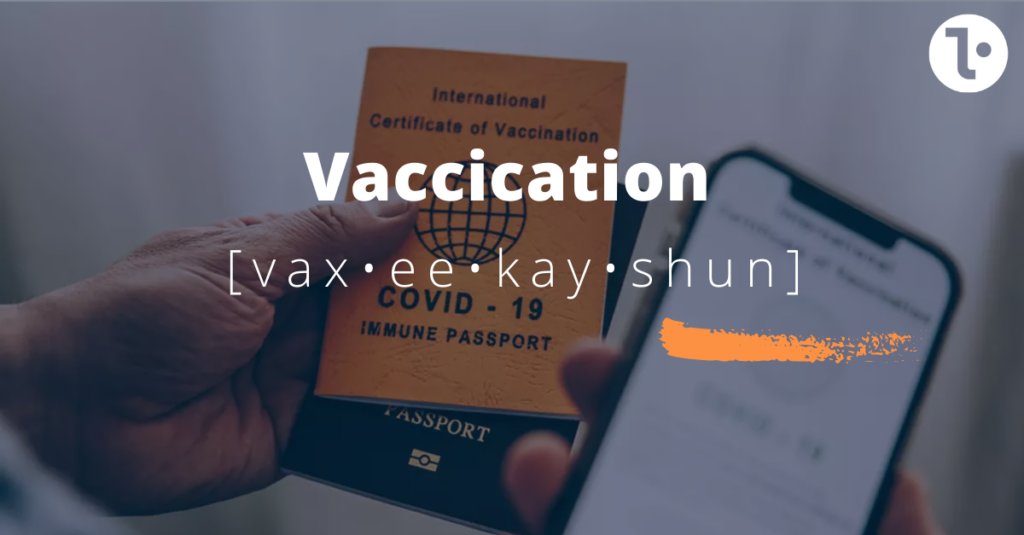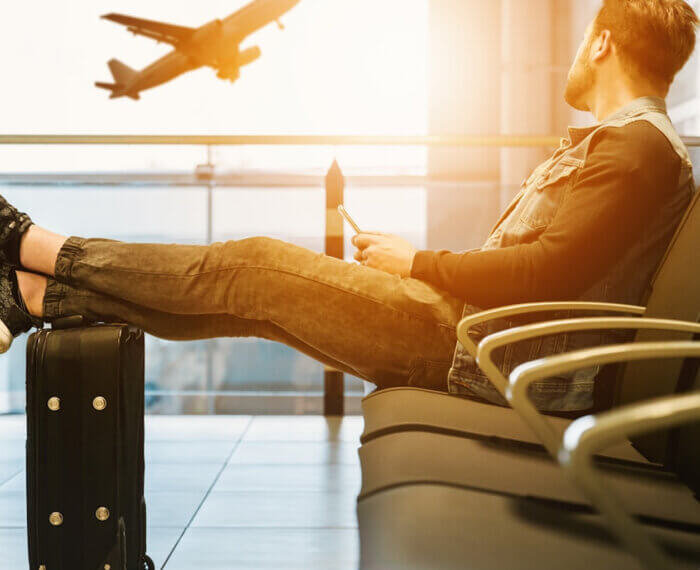Vaccication – How Vaccine Travel Passports Will Reboot Tourism

Vacci…what? Yes, you read that right. Vaccication is a newly-invented term that will define travel in 2021.
In case you haven’t heard it before, allow us to explain what it’s all about! Vaccication comes from combining the words vaccine and vacation to create a playful pun that describes the act of starting to travel again once you have been vaccinated. The first trip you will take after getting “the jab”, and travel opens up after more than a year of ongoing lockdowns, will surely be an unforgettable one. I think we can all agree that vaccication deserves its own name!
More than a pun
The Covid-19 outbreak froze most travelers’ plans for 2020, and as a result, flight bookings and revenue have taken a serious blow since then.

Now, the Covid-19 vaccine rollout has helped rekindle the world’s appetite for travel. Bookings for 2021 rapidly picked up after the Pfizer vaccine was authorized in December 2020, and according to the travel agency Virtuoso, hotel bookings for June 2021 are up 146% over May 2021.
With most of us being cooped up over the past year, we have taken time to daydream and plan our big trips for 2021. As more and more of us get vaccinated, optimism and support for these plans is on the rise. At the same time though and alongside this growing traveler confidence, a few inevitable questions still linger.
What kind of tests will I have to do to travel?
What happens if my Covid-19 test turns out positive at the beginning of my trip?
Will my Covid-19 test be accepted in the country I am visiting?
What will happen if travel measures change during my trip?
Vaccine travel passports can become an ally in answering some of these questions and confronting the global standstill of tourism. Even if the staycation trend persists and luxury getaway planning across the pond grows slowly, travel will most likely see a massive uptick in the second half of 2021, with people seeking out unique experiences beyond the walls of their own homes and computer screens. As a result, tech companies are already discussing the design of “vaxports” [vaccination passports], a type of digital passport or immunity card that travelers will show before getting on a flight or entering a large venue to prove that they’ve been vaccinated. (1)
All in all, it is clear that both vaccines and vaccine passports are bound to play a critical role in restarting the travel industry. So, how exactly will all this reshape the tourism industry and influence travelers’ plans within 2021?
A vital lifeline for tourism
Let’s take a few steps back to March 2021. On March 17th, the E.U. officially announced that it would issue Digital Green Certificates to help tourism across its member countries return to its former state. While many viewed this announcement cautiously at first, it seems that now, most countries, especially those in need of the rapid resurgence of tourism, are eager for its quick implementation.
Greece, for instance, whose GDP relies heavily on tourism (12.5% of its GDP comes directly from tourism and its total contribution rises to almost 33%), has announced that it will accept travelers from May 14th, as long as they provide a negative Covid-19 test, an antibodies test or a vaccine certification.
Sweden, Denmark, and Estonia are already developing national digital immunity passports believing those issued by the E.U. will be significantly delayed. Iceland has already opened its borders for vaccinated travelers.
Tourism industry sectors worldwide are also pushing for the standardization of health forms and Covid-19 test results to make travel safe and accessible once again.
Many airlines like British Airways, Lufthansa, Virgin Atlantic, and Qantas have already shared that vaccination is highly likely to be mandatory for passengers to fly on their planes. British Airways specifically announced it intends to increase its trial of the VeriFLY digital health app across all international flights operating into the U.K. Therefore, it seems that entire nations, industries and sectors are moving in similar directions with regards to Covid-19 travel measures and vaccination requirements.
However, as you may have noticed, there is a slight lack of coherence between countries regarding the measures that each has decided to take to counter Covid-19’s impact on travel. The main reason for this is that, although we all face an unprecedented situation, every country faces the pandemic threat differently, dealing with different case numbers and resources. It seems evident that one of the E.U.’s main goals for developing vaccine passports is unity – as we absolutely need cohesion for travel to recover — and not just in the E.U. Will vaccine travel passports be the way to achieve this?
What will vaccine travel passports look like?
From what we know so far, the passport will be a digital app featuring a Q.R. code that will incorporate a travelers’ personal data, vaccination records and recent Covid-19 test results. It will offer proof that the holder has been vaccinated against the coronavirus, allowing them to move freely across the 27 member states. The E.U. is also looking for ways to include non-EU countries like Norway, Switzerland and Iceland.
Denmark plans to issue its own “Coronapas” that will be linked to the already familiar NemID, a digital I.D. system that gives Danes access to multiple online platforms. Estonia plans to take a similar road, issuing national digital certificates that will also have the form of a Q.R. code. Israel has already created its “Green Pass” for citizens who have been fully vaccinated or have recovered from Covid-19, and the U.K. is considering the creation of a national vaccine certificate.
So, merging the archetypes of vaccine travel passports we know about so far, it seems likely that all attempts to create a universal – or in our case, European – travel passport will have these things in common:
- A digital and print version of the vaccine passport.
- A QR code for easy scanning.
- The passport will include information about covid vaccinations and possibly the medical history of the traveler.
These plans, although significantly promising towards the revitalization of tourism and facilitating travel, do not necessarily mean the end of all measures we have been exposed to over the past year.
Measures to remain – Technology to the rescue
Research has not yet shown if vaccinated people showing no symptoms of a Covid-19 infection can transmit the virus. So masking and social distancing will stick around until further research tells us otherwise or until global herd immunity has been reached, something unlikely to occur this year, according to the WHO.
Melinda Gates from The Gates Foundation stated that global herd immunity will be reached sometime in 2022 as many vaccines, “particularly single-shots like Johnson & Johnson’s, probably won’t begin reaching developing countries “en masse” until the end of this year“.
The success of vaccine travel passports in the resurgence of tourism remains to be seen. But, until we reach that critical point of safety, we can definitely say that the use of technology will permeate every aspect of the travel industry, propelling it into grounds of efficiency, convenience and automation. Tourism’s digital transformation has already begun, and you don’t want to be left out, do you?
Triparound can help your travel business:
- Eliminate Covid-19 stress by making all activity bookings contactless.
- Increase customer satisfaction by offering fast, simple, and seamless payment methods.
- Gain valuable insights on activity trends and customer profiles to plan ahead.
- Manage the capacity of all your venues with flexibility and efficiency, abiding by government measures.



